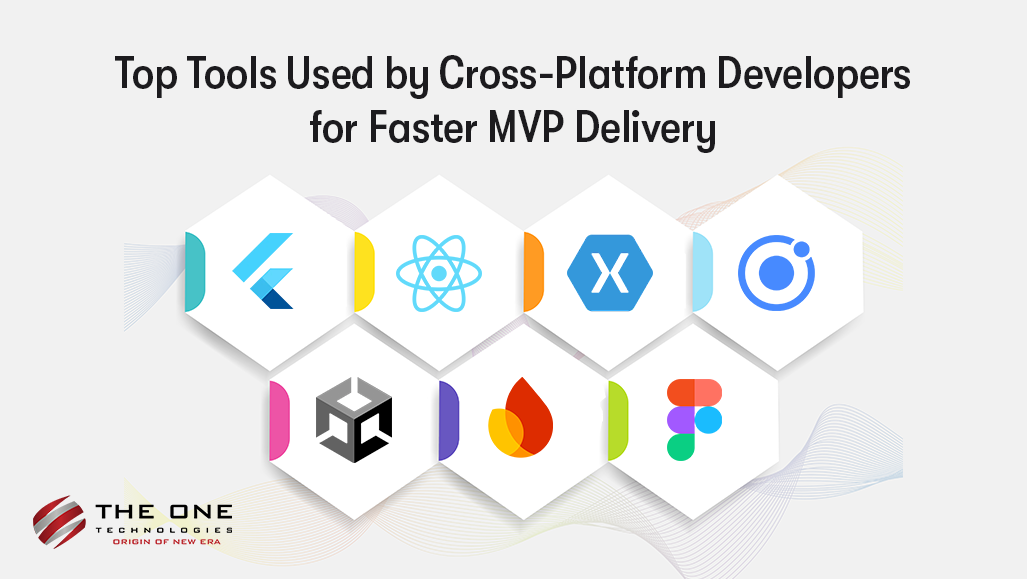Best Cross-Platform Development Tools for MVP Delivery

Table of Contents
Introduction
For many companies, the path from an idea to the marketplace often feels like an endurance test. Many teams face slowdowns due to fragmented development environments. Redundant codebases and platform specific problems make things harder. Trying to prove your idea works fast and cost effectively is tricky.
This is where cross-platform development helps. Instead of coding different apps for iPhones, Android, and web platforms, developers can write code once. Then that same code can work across all platforms. The result is faster MVPs, reduced costs, and quicker market feedback. But success depends on using the right tools to streamline the process. To simplify this cross-platform process and build faster, cost-efficient MVPs, it is best to consult MAUI developer experts who can help you implement the right tools from day one.
Below are some of the best tools that help teams quickly release MVPs while keeping quality high and users satisfied.
1. Flutter
Flutter has become a favorite for both startups and enterprises because it is powered by Google. It helps developers create high performance apps for mobile, web, and desktop using a single codebase.
Why it is powerful for MVPs
- Fast prototyping: Hot reload allows developers to see code changes instantly.
- Native performance: Flutter compiles to native code, giving apps near native responsiveness.
- Flexible UI: The extensive widget library makes it easy to create polished and brand aligned MVPs.
2. React Native
React Native by Facebook remains a popular framework for building cross platform apps. Developers can use existing JavaScript and React knowledge to build mobile applications.
Why it stands out
- Reusable components: A large part of the web codebase can be reused which speeds up MVP delivery.
- Strong ecosystem: Supported by Meta and a massive community offering plugins and libraries.
- Flexibility: Integrates easily with native code when partial native functionality is required.
3. Xamarin
Part of the Microsoft ecosystem, Xamarin enables powerful cross platform app development using C Sharp and the Dot NET framework.
Advantages for MVP delivery
- Single technology stack: Up to 90 percent of code can be shared across platforms.
- Native performance: Apps compile to native binaries ensuring smooth performance.
- Azure integration: Ideal for enterprise MVPs that need cloud support, analytics, and scalability.
4. Ionic
Ionic is a natural choice for teams comfortable with HTML, CSS, and JavaScript. It wraps web views in native containers to quickly deploy apps across platforms.
Why it is great for MVPs
- Fast learning curve: Web developers can shift to app development easily.
- Prebuilt components: Large UI libraries speed up interface creation.
- Integration friendly: Works well with Angular, React, and Vue.
5. Unity
Unity is commonly known for gaming but is now widely used for real time 3D experiences across healthcare, education, and interactive applications.
Why Unity is ideal for MVP development
- Runs on almost all platforms including mobile, desktop, AR or VR, and IoT devices.
- Delivers high quality visuals which is great for interactive or 3D experiences.
- Has a huge asset store to speed up development with ready made resources.
6. Firebase
Fast MVP development depends on a scalable backend. Firebase by Google offers authentication, real time databases, analytics, hosting, and more without server management.
MVP advantages
- Real time database: Syncs data instantly across devices.
- Built in analytics: Helps track user behavior during early testing.
- Authentication and hosting: Saves setup time by offering ready backend features.
7. Figma
Before building an MVP, proper design planning is essential. Figma is an online collaboration tool that helps teams align on UI and UX before development begins.
How it speeds up MVP delivery
- Real time collaboration between designers and developers.
- Plugins that convert Figma designs into Flutter or React code.
- Version control to maintain clarity on design decisions.
Conclusion
Businesses no longer need to choose between speed and quality. Modern cross platform frameworks like Flutter, React Native, and Xamarin enable teams to build high quality MVPs for Android and iOS using a single codebase. This approach allows companies to test ideas quickly, gather user feedback, and scale efficiently.
To succeed, you need strong planning, the right expertise, and a skilled development team that can bring ideas to life. If you want to build a powerful MVP, The One Technologies can be a trusted partner. They specialize in cross platform app development and deliver scalable MVPs that help businesses validate ideas faster and grow confidently.









